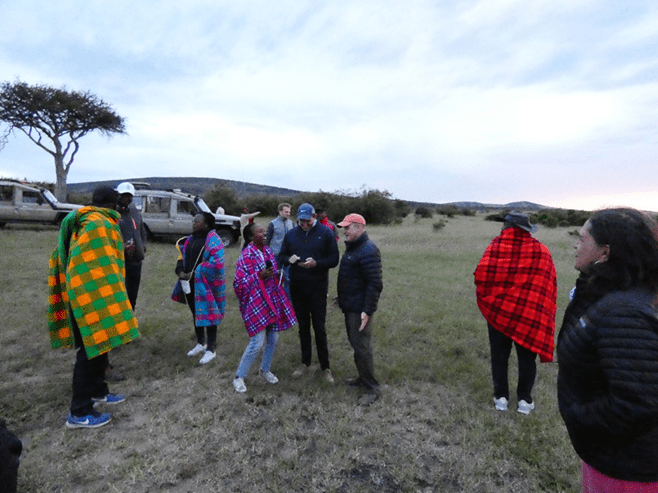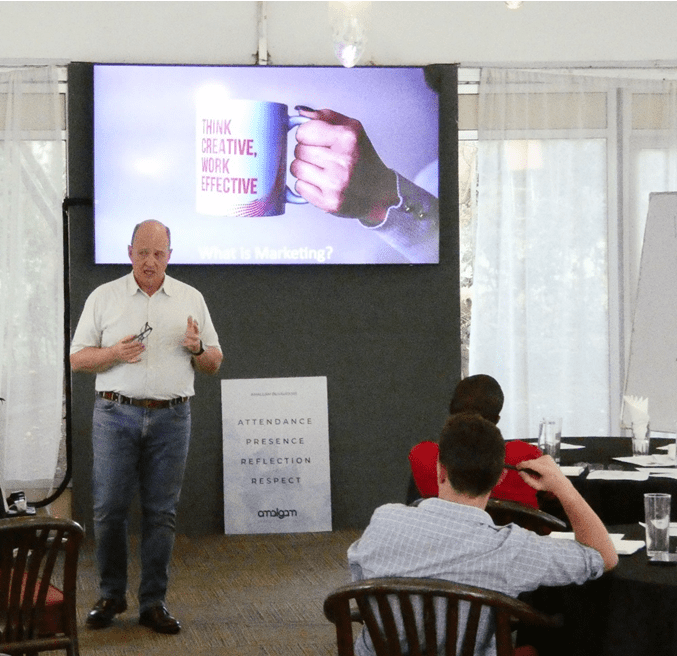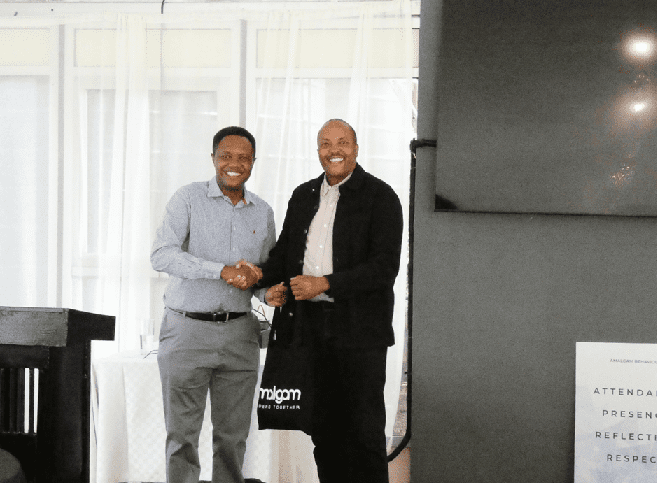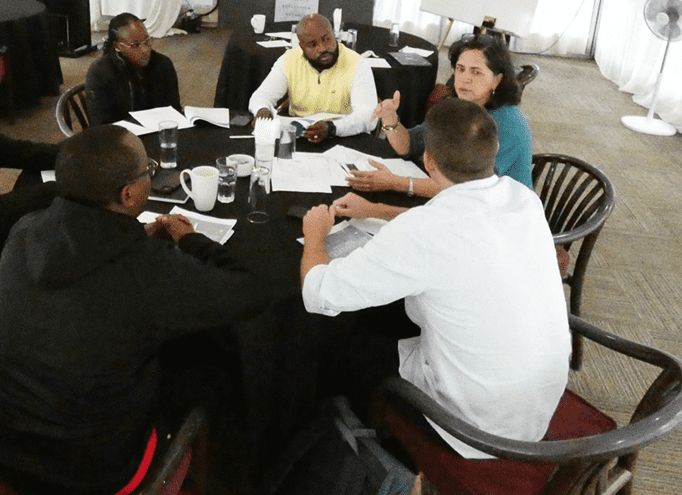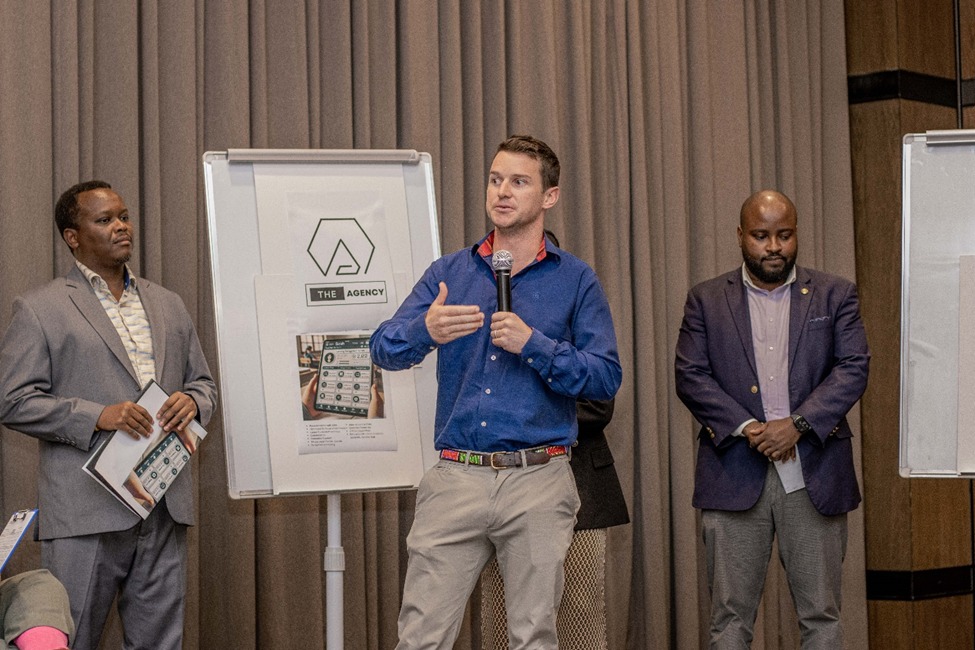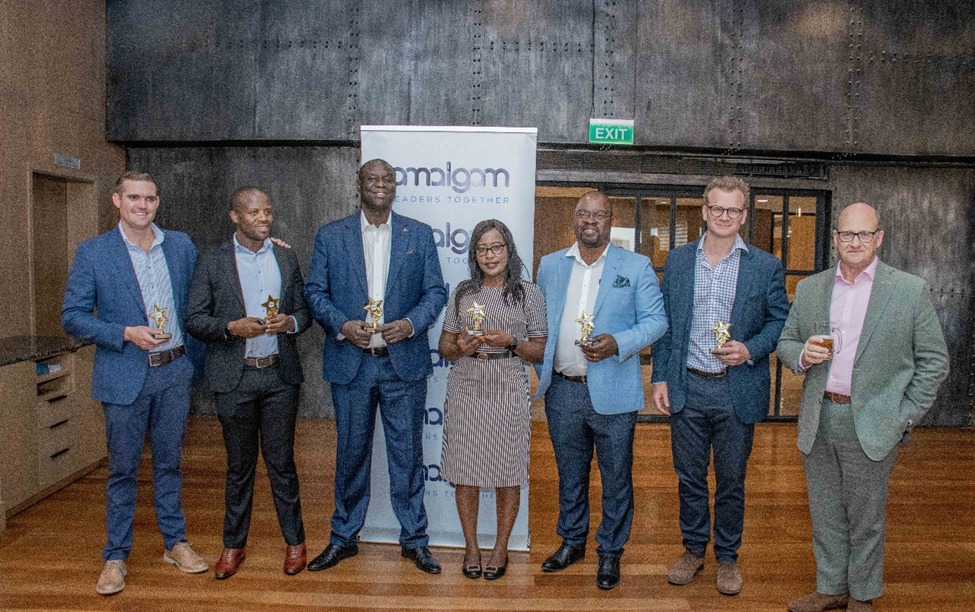The fourth Amalgam session of 2023 had a focus on finance and governance. As part of the internal accountability of an applicable learning programme Dr Yolande Coombes started the two-day session by asking all participants to reflect on what new things they had learned or tried out since the last session. The range of learnings included: starting journaling, trying to be more vulnerable, using my strengths differently, trying ideas from books, increasing self-awareness, techniques to be calmer, learning AI, and a “positive news only” meeting to get team members focussed on what is working.
Cashflow Statements
The first session was led by RB Ndung’u on demystifying cash flows. This practical session highlighted the difference between direct and indirect accounting methods and how information can be buried in accounts. Using accounts from a company on the Nairobi Stock Exchange, the participants had a real-time exercise to uncover the company’s health by using their newfound ability to interrogate financial statements to extract decision-making information. The objective of this module is to get the participants to understand cash flows from a leadership perspective. This session highlighted for participants how to read accounts more diligently and to understand the importance of following up on the notes and cross-referencing accounts – this is where you find the ‘secrets’ and how you drill down to a company’s financial health.

Blockchain and Cryptocurrency
This is the second year that Raymond Kaptich has taken the class through the fundamental concepts of Blockchain and Cryptocurrencies and how they work. Raymond conceptualised that Blockchain is like the internet, and Cryptocurrency is one application of Blockchain, but there are many more. Blockchain is a way of building trust and eliminating intermediaries. Blockchain spreads data regarding transactions, deals, and records to multiple people, meaning it is almost impossible to forge or manipulate data. Blockchain can be used for land registries, passports, and supply chains. We are only just beginning to tap into the multiple uses of Blockchain.
The primary use of Blockchain has been in Cryptocurrency. Raymond explained that Crypto is akin to loyalty points at a supermarket or Bonga points with Safaricom - you can’t see them, but you can exchange them. He then talked through the different types of Cryptocurrencies, their application and uses, and introduced the class to Ethereum and the possibilities unlocked by the decentralised apps that can run on the Ethereum blockchain. He also explained the different ways to invest in the cryptocurrency economy, the risks and rewards of each method, and how to get started in this area.
Assignment Feedback
Chris Harrison gave feedback to the participants on the business culture homework they had been set at the last session. The assignment has been to identify areas of culture within their businesses that needed addressing or strengthening. Participants reflected on how they could take their ideas through to execution and spent some time outlining the next steps.
Guest Speaker – Julian Kyula
Amalgam Leadership’s guest speaker this month was Julian Kyula. Julian is an accomplished entrepreneur and business leader who has been nominated and received awards for his accomplishments from organisations such as IBM, CNBC and Top 40 under 40. He is the founder of MODE group, a fintech with a presence in over 26 countries (including 14 in Africa). He also started Kyula Capital International, EDOMx and Beulah City (affordable real estate for community welfare).
Julian’s presentation to the participants on the moments that have mattered in his life began by outlining some of the key traits that have helped him succeed: creativity, courage, grit and focus. He piqued the class’s interest with his assertion that ‘Thought - not money is the real business capital’ quoting Harvey Firestone. He surprised the participants by explaining how as an entrepreneur, sometimes you have to consider destroying your business as part of your strategy to build something better. He urged the class to think about what they were doing as leaders. He indicated that critical leadership ability puts substance into the details of who, where, what, and when; the most important focus is why.
Mining Human Truths
Ndirangu wa Maina, Amalgam co-founder and CEO of Consumer Insight explained to the class the process of deriving insights into a company’s customers to serve their needs better and win market share, and loyalty and ultimately drive-up revenues. Ndirangu used a series of case studies as part of an interactive session where they had to deduce the insights driving the communication. Participants were very thoughtful about the notion of universal insights and how these might apply to their businesses and, in particular, the value of placing the customer at the centre of your businesses.
Mentor Time
The final session of the first day was mentor time where participants had a chance to connect with their mentors in small groups and update them on their emotional intelligence journey using the Mygrow app. Participants have found that they are becoming more self-aware which is helping them lead themselves and in turn lead others better. The mentor session was also a time to discuss problems in their business and to identify some new or different things to try out as part of the emphasis on applicable learning.
Financial Ratios for Leaders
The second session of the weekend by RB Ndung’u was on how to use financial ratios to assess the health and future direction of a company. RB took the cohort through the different ratios, their use, and their implications for a business, all extracted from the audited financial statements of a company listed on the Nairobi securities exchange.
Participants were tasked to calculate the ratios for this company, they then had to summarise what they thought the health and future of the company is. RB encouraged them to carry out a similar exercise with their own accounts for the businesses they work in. Many participants were intrigued by the way ratios can provide a depth of information that is not as obvious when looking at the balance sheet.

Business Ethics and Diversity & Inclusion
Dr Angela Gichaga flew back especially to take the class of 2023 through two thought provoking sessions; one on Business Ethics and the second on Diversity and Inclusion. It stimulated some interesting discussion about the role of leaders, businesses and organisations in shaping how business should take place.
In the Business Ethics session, Angela challenged the class to consider the long-term implications of corruption and how one small act can become pervasive throughout society. Ultimately - ethical businesses do better in the long term. She also challenged the class on whether we are really clear on what corruption is. The participants were given some scenarios (acted out) which challenged their approaches to ethics and diversity and inclusion. Angela informed the class about the perceived trade off and misconceptions of business ethics.
Angela explained how a diverse workforce (in terms of age, ethnicity, gender, religion, capability, and culture) and an inclusive work environment where everyone is treated fairly and respectfully with equal access to opportunities and resources can impact the bottomline success of a company. She shared research data showing how diverse companies can be up to 25% more profitable.
Data protection and privacy session
A new module for the 2023 curriculum is Data Protection and Privacy which was presented by Cynthia Mathenge from SeeWhy Source. Participants were orientated to some recent changes in law that will affect them in terms of data protection and privacy. Cynthia explored with participants the value of data protection and privacy in terms of brand reputation and stakeholder assurance. She shared cases of where companies have been fined or had legal claims against them for not taking the issues seriously enough.
Networking
A final session to embed a transferable skill of networking was facilitated by Yolande for the participants to learn better skills in gaining and sharing information and to be able to offer assistance to one another. It was set up as ‘speed dating’ where participants had 4 minutes to find a connection with the person they were talking to and an area of mutual interest where they might be able to offer some assistance to one another. Most of the participants ended the session wanting second dates to follow up on the advice or ideas they had gained!





















































